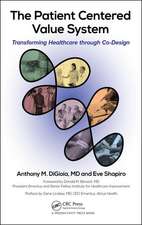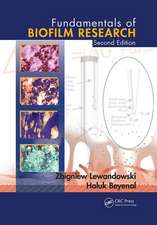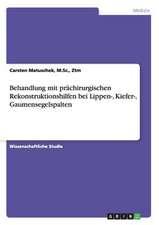The Politics of the Pharmaceutical Industry and Access to Medicines: World Pharmacy and India
Editat de Hans Löfgrenen Limba Engleză Paperback – 25 iun 2024
Please note: Taylor & Francis does not sell or distribute the Hardback in India, Pakistan, Nepal, Bhutan, Bangladesh and Sri Lanka
| Toate formatele și edițiile | Preț | Express |
|---|---|---|
| Paperback (1) | 254.04 lei 6-8 săpt. | |
| Taylor & Francis – 25 iun 2024 | 254.04 lei 6-8 săpt. | |
| Hardback (1) | 992.90 lei 6-8 săpt. | |
| Taylor & Francis – 21 iun 2017 | 992.90 lei 6-8 săpt. |
Preț: 254.04 lei
Preț vechi: 323.40 lei
-21% Nou
Puncte Express: 381
Preț estimativ în valută:
48.65€ • 50.13$ • 40.76£
48.65€ • 50.13$ • 40.76£
Carte tipărită la comandă
Livrare economică 24 februarie-10 martie
Preluare comenzi: 021 569.72.76
Specificații
ISBN-13: 9781032652924
ISBN-10: 1032652926
Pagini: 370
Dimensiuni: 138 x 216 mm
Greutate: 0.16 kg
Ediția:1
Editura: Taylor & Francis
Colecția Routledge
Locul publicării:Oxford, United Kingdom
ISBN-10: 1032652926
Pagini: 370
Dimensiuni: 138 x 216 mm
Greutate: 0.16 kg
Ediția:1
Editura: Taylor & Francis
Colecția Routledge
Locul publicării:Oxford, United Kingdom
Public țintă
PostgraduateNotă biografică
Hans Löfgren is Associate Professor in Politics and Policy Studies, Deakin University, Melbourne, Australia.
Cuprins
- The Pharmaceutical Industry and Access to
Medicines in India
The Pre-1972 Product Patent Period
The Process Patent Era 1972–2005
Full TRIPS-compliance from 2005
Financial and Economic Crisis and Access to
Medicines for All - Challenges of Regulation of Medicines in India
Price Regulation
Weeding Out of Irrational Medicines: A Necessary
Complement to Price Control
Law on Banning Irrational Medicines
Towards Ethical Marketing and Promotion of Medicines
Promoting Transparency and Declarations of Conflict
of Interest
General Review of all Legislations
Other Issues
Conclusion - CIPLA: Patients before Patents
Modest Beginnings
Yusuf Hamied Living up to his Legacy
India’s Patent Law 1972
The Three Drug Combination: Potent Cocktail
A Life-saving Offer
Success Story
The Road Ahead - Systemic Failure of Regulation: The Political Economy
of Pharmaceutical and Bulk Drug Manufacturing
The Regulation of Industrial Pollution
Structure and Methodology
Structures of the Value Chains in the Rural Economy
Pathways of Pollution in the Dairy Industry
Regulatory Checks on Pathways in Value Chains
Final Observations - TRIPS Flexibilities and Access to Patented Medicines
in India
Use of Trips Flexibilities
Exemptions from Patentability
Future Options - India’s Free Trade Agreements: Implications for
Access to Medicines in India and the Global South
Introduction
TRIPS Compliance: Using the Doha Declaration
in India
India’s FTA Negotiations: An Overview
FTAs and Access to Medicines: Key Concerns
Intellectual Property Provisions
Investment (or Investor Protection) Measures
Regulatory Harmonization
Government of India’s Position
FTAs, TRIPS and the Right to Health
Conclusion - At any Price? Boehringer Ingelheim, Bayer
HealthCare and Baxter in India
The Examined Companies
How Good are the Drugs Supplied by these Companies?
What about Access?
Drug Treatment in the NGO, Private and Public Sectors
Research and Patents
Marketing and Business Behaviour
Conclusion - Trends and Prospects for India as a Global Generic
Player
Introduction
Regulatory Status of India in World Generics
Markets
India’s Bilateral Trade in Pharmaceutical Products
Outlook for the Indian Pharmaceutical Industry
TRIPS and the Future of the Indian Pharmaceutical
Industry
Conclusion - The Indian Patent Law and Access to Antiretroviral
Drugs in Sub-Saharan Africa
TRIPS and Public Health
Compulsory Licensing
Parallel Imports
The Scope of Patentability
Indian Patent Law
African Patent Laws
The Impact of the Patent Status in India on Access
in Sub-Saharan Africa
Lacking Access to Patented Radical Innovative
Antiretrovirals
Patents Matter - Accessing Medicines in Developing Economies
Intersection between IPRs and Competition Law
Refusal to Licence Pharmaceutical Patents in
South Africa
Some Considerations
Abbott’s Withdrawal of Medicine Registration
Applications in Thailand
Exclusive Distribution and the High Prices of
Medicines in Vietnam
Indian Perspective
Concluding Remarks - The Politics of AIDS Treatment in Brazil
Introduction
The Strategy of Local Generic Production
Challenges to the Sustainability of an Inclusive AIDS
Treatment Policy
Restricting Patent Rights to Reduce ARV Costs
Conclusions - Financing Pharmaceutical Research and
Development: Alternatives to the Patent System
Problems with the Patent System
Alternative Mechanisms for Financing R&D
Conclusion - Post-script
Descriere
The book studies the pharmaceutical industry of India. It is one of the most successful stories of economic expansion and improvements in public health. Indian firms have made access to quality medicines possible and affordable in many developing countries. Indian pharmaceuticals are also exported on a large scale to the United States and other










